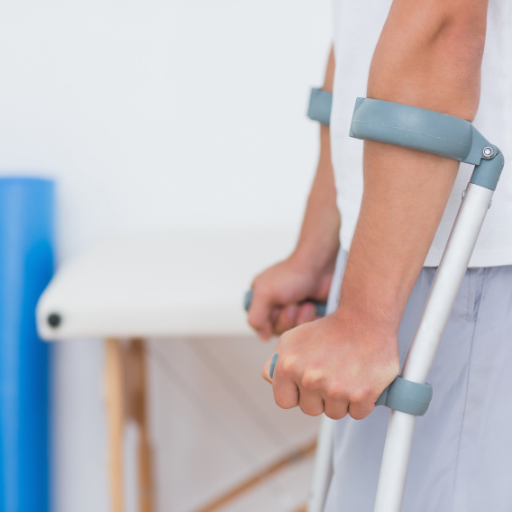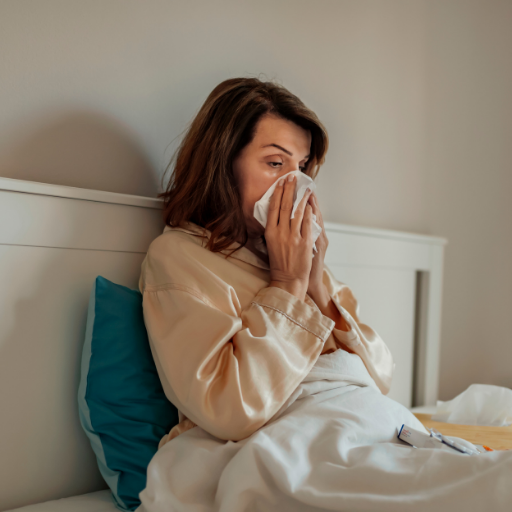Wellness Blog
The content on this blog is for general informational purposes only and is not a substitute for professional medical advice, diagnosis, or treatment. Always consult your healthcare provider before making changes to your health routine or taking new supplements.
Vitamin D: The Overlooked Essential Vitamin for Women’s Health
We often hear about the importance of eating fruits and vegetables, but do we truly understand the key nutrients that fuel our well-being? Among them, vitamin D stands out as a powerhouse for women’s health.
Learn moreVitamin D deficiency: what you need to know
Vitamin D is essential for building strong bones and optimising calcium absorption from the gut. It also has roles in maintaining a healthy immune system, skin and muscle strength. Despite its importance, approximately 31% of Australians are deficient.
Learn moreVitamin D for bones: How can a vitamin D supplement support bone strength?
Vitamin D is an important component of our body's skeletal and muscular health and maintenance. That's because our skeletal and muscular systems are what give our bodies their shape! While calcium is better known for supporting bone health, without vitamin D for bones, it would be very difficult for our body to absorb the calcium needed for our skeleton and muscles. In fact, a deficiency of Vitamin D can lead to long-term effects on our bones.Vitamin D for bones: Why is it important?Vitamin D maintains and supports bone health by controlling calcium levels in our blood. As is widely known, calcium is needed for strong bones, muscles, and overall health of our body (1). Calcium is also important for our heart and nerves to function properly, and for our blood to clot (2).But our body needs vitamin D to absorb the calcium we get from either food or supplements. Vitamin D - specifically D3 - helps form calcitriol, an 'active' form of vitamin D that absorbs calcium in the stomach. If our body doesn't have any vitamin D, we won't be able to absorb calcium from the food or supplements we consume. If that happens, the body takes calcium from calcium deposits in our skeleton. This can weaken our bones and prevent the formation of new, strong bones (3).The dangers of vitamin D deficiencyA lack of vitamin D can cause serious problems, especially for children and senior citizens. Studies have found that vitamin D deficiency may be a contributing factor to bone weakness, bowed legs and other skeletal problems (4), while older people's bones can lose calcium as time goes on, making their bones more fragile and easier to break. Vitamin D deficiency in senior citizens also affects muscle strength, which increases the probability of falls, a common problem that could lead to substantial disability (5).Sources of vitamin D for bonesA great way to keep up your levels is by consuming more food sources of vitamin D for bones. Unfortunately, only a few food sources contain vitamin D naturally. Egg yolks, some mushrooms, and the flesh of fatty fish like herring, salmon, and mackerel are good sources of vitamin D, but consuming them only provides 10% of the vitamin D that we need (6). Aside from consuming vitamin D supplements alongside a healthy diet, a great source of vitamin D is from the sun, which is why vitamin D is also called the “sunshine vitamin.” Other sources of vitamin D include food products like cereals, sardines, dairy and plant milks, and orange juice (7).Vitamin D supplementationThere are two types of vitamin D supplements in the market today; vitamin D2 and vitamin D3. Vitamin D2 is mostly found in plants, fortified foods, and some supplements, while vitamin D3—the type naturally produced in the human body—is also found in some animal foods (8). Scientists and researchers recommend prioritising vitamin D3 consumption as it is the variation already found inside us.As the “sunshine vitamin” moniker suggests, exposing our skin to the sun's ultraviolet (UV) rays is one of the best sources of vitamin D. But balancing sun safety and getting an adequate amount of vitamin D can be rather tricky. As anybody who has spent too much time under the sun can attest, sunburn is a painful signal that you're getting too much sun. Too much exposure can also increase the risk of skin cancer (9). So always be mindful of your location's UV index for the day whenever you need to go out for a prolonged period of time. And make sure to have some sort of sun protection, like sunscreen, a hat, or clothes that provide ample coverage.Our musculoskeletal system—that is, all of the body's bones, muscles, cartilage, tendons, ligaments, joints, and other connective tissue— supports our entire being and lets us move about. Think of it as our internal scaffolding. Making sure that our internal scaffolding is strong enough to last us up to our old age is a no-brainer, and making sure that you take enough vitamin D is a good habit to start with. Ensuring that you get an adequate amount of vitamin D in your diet is no problem when you have a well-balanced diet. Pairing this with Vitable vitamins which come as a vitamin subscription box can help support healthy bones and beyond. You can curate a vitamin plan with vitamins tailored to your health and lifestyle, and we'll take care of the rest with our special vitamin delivery service to anywhere in Australia. Find out more about other areas that the above supplements can help you with:Magnesium | Calcium Plus | Vitamin C | Vitamin D | Cranberry *Always read the label. Follow the directions for use. If symptoms persist, talk to your health professional. Vitamin and/or mineral supplements should not replace a balanced diet.References: Better Health. “Vitamin D.” Better Health. Published (n.d.) on https://www.betterhealth.vic.gov.au/health/healthyliving/vitamin-d. Accessed 17 October 2021. National Institutes of Health. "Calcium and Vitamin D: Important at Every Age." NIH Osteoporosis and Related Bone Diseases National Resource Center. Published (n.d.) on https://www.bones.nih.gov/health-info/bone/bone-health/nutrition/calcium-and-vitamin-d-important-every-age . Accessed 17 October 2021. National Institutes of Health. "Calcium and Vitamin D: Important at Every Age." NIH Osteoporosis and Related Bone Diseases National Resource Center. Published (n.d.) on https://www.bones.nih.gov/health-info/bone/bone-health/nutrition/calcium-and-vitamin-d-important-every-age . Accessed 17 October 2021. Orthoinfo. "Vitamin D for Good Bone Health." American Academy of Orthopaedic Surgeons. Published (n.d.) on https://orthoinfo.aaos.org/en/staying-healthy/vitamin-d-for-good-bone-health/ . Accessed 17 October 2021. Harvard School of Public Health. "Vitamin D." Harvard School of Public Health. Published (n.d.) on https://www.hsph.harvard.edu/nutritionsource/vitamin-d/ . Accessed 15 October 2021. NPS Medicinewise. "Vitamin D and COVID-19." NPS Medicinewise. Published 3 August 2020 on https://www.nps.org.au/news/vitamin-d-and-covid-19 . Accessed 15 October 2021. Health Direct. "Vitamin D deficiency." Health Direct. Published (n.d.) on https://www.healthdirect.gov.au/vitamin-d-deficiency . Accessed 17 October 2021. Harvard School of Public Health. "Vitamin D." Harvard School of Public Health. Published (n.d.) on https://www.hsph.harvard.edu/nutritionsource/vitamin-d/ . Accessed 15 October 2021. NPS Medicinewise. "Vitamin D and COVID-19." NPS Medicinewise. Published 3 August 2020 on https://www.nps.org.au/news/vitamin-d-and-covid-19 . Accessed 15 October 2021.
Learn moreVitamin D and immunity: What you need to know
The human body is delicate and complex, which is why it's crucial to give it the attention it needs to carry out daily functions, like supporting our immunity. Vitamin D plays a crucial role in our overall health, specifically when it comes to protecting our bodies from illness. Getting your daily dosage of the essential vitamin can help support immune system health.Nicknamed the “sunshine vitamin,” sufficient levels of vitamin D can be maintained through daily, healthy sun exposure. However, due to the busyness of day-to-day life, this may not be feasible for many Australians. In this case, including a vitamin D supplement as part of a healthy, well-balanced diet can help support your immune system. This is particularly important for Australians during seasonal changes, as the immune system may be compromised. Different times of the year bring with them different ailments, with the colder months particularly straining the body's immune response, making us more susceptible to illness. To help your immune system function optimally all year long, let's first understand the link between vitamin D and immunity.How the immune system worksThe immune system is a complex network of cells and proteins that defend the body against infection (1). One of these defences works by keeping a track record, so to speak, of every harmful microbe it has ever encountered and successfully fended off. Disease-fighting cells refer to this track record kept by the immune system every time our bodies are alerted to the presence of harmful microbes. In this way, the immune system can quickly recognise and eliminate invaders—especially repeat offenders—that manage to get inside the body and stop them from spreading and doing widespread damage. This mechanism is one of our body's first, and most effective, defences against all manners of illness. However, there are some illnesses that prove to be more difficult for the immune system to fight off, such as illnesses caused by viruses with different kinds of strains, with each behaving like a new virus that our immune system has had no exposure to. You may have immunity against one strain, yet have no protection against others of the same kind. This is why it is super important to keep our immune system functioning optimally at all times so that we are ready to fend off various types of illnesses. When it comes to caring for our immune system so that it can fulfill its health-promoting duties, it's important that we learn how to keep it robust.Vitamin D and immunityVitamin D is known for its importance in helping the body absorb and retain calcium, which in turn helps keep bones, muscles, and teeth healthy. Only in the last 30 years has it been established that there is a strong link between vitamin D and immunity (2), with the vitamin doing so much more for our health than previously known. Medical researchers have discovered the presence of vitamin D receptors on the surface of almost all immune cells. To better appreciate this, think of these receptors as locks that can only be opened with the right key. It was found that vitamin D can unlock a response in immune cells and positively influences the activities of our immune system (3), providing immunity-boosting and strengthening benefits. This landmark discovery has spurred several medical inquiries into the interaction of vitamin D and immunity, thus prompting many to focus on the nutrient as part of a healthy diet.Vitamin D and fending off seasonal ailmentsAs mentioned earlier, the immune system works continuously throughout the year to protect us from disease, but the wintertime can be particularly stressful on your bodies. Consider all those times when you or someone you knew was concerned about winter flu, an all too common illness Australians have to deal with come the colder months of the year. Studies have shown that vitamin D is at its lowest levels during the winter season given that it is mostly acquired from the sun's ultraviolet (UV) rays, and that adults who are vitamin D deficient are more likely to report developing flu symptoms such as a cough, cold, or upper respiratory tract infection (4). Rather than risk getting sick during the winter or any other time of the year, vitamin D can be included into your healthy diet plan as food or supplements.The best sources of vitamin DWe talked about getting vitamin D from healthy sun exposure, but this essential vitamin can also be acquired from vitamin D-rich foods. You can choose to spend some time outdoors in the sun, but be sure to also eat a well-balanced diet that includes foods such as oily fish (think salmon, sardines, herring, and mackerel), egg yolks, mushroom, and meats (red meat and organ meats, for example) which are all rich in vitamin D (5). Foods fortified with vitamin D include orange juice, dairy products and plant-based milks, and fortified cereals (6).However, it may not always be possible to spend time outdoors or to eat regular meals containing these foods, which is where supplementation comes in. It can be taken alongside a healthy diet to ensure you achieve your daily requirement of vitamin D.About vitamin D deficiencyIf you suspect you have a vitamin D deficiency, there are symptoms to watch out for. You might notice mood fluctuations (with an emphasis on feeling down or blue more often, and for much longer), and general sensations of tiredness or fatigue, and weakness. These might be accompanied by physical pain in your bones, muscles, and joints as well (8), and on top of all this, you may notice that you've become more prone to sickness as a result of an immune system that lacks the support it needs from vitamin D (9).Deciding on a vitamin D supplementNow that you're better armed with knowledge about the relationship of vitamin D and immunity, the next step is to assess whether a vitamin D supplement is right for you.If you've ever looked into which vitamin D supplement might suit your needs, you may have learned about the two different kinds; vitamin D2 and vitamin D3. In a nutshell, vitamin D2 is made from plants and is found in fortified foods and some supplements, while vitamin D3 is naturally produced in the human body and is found in animal foods. Both have a role in the relationship between vitamin D and immunity, but vitamin D3 has been cited as the preferred version of the supplement, as it is the variation that's naturally found in the body.The benefits of a vitamin D supplementThe ultimate advantage of taking a vitamin D supplement is its overall ability to support and maintain optimal immune system function, especially when we are exposed to environmental factors that demand our immunity to work double time. It can also aid in the absorption of other key vitamins and minerals that similarly contribute to the effectiveness of our body's immune response. In supporting your immune system, you allow yourself to enjoy living a full life that is not weighed down by illness.Making sure you're getting the right amount of vitamin D is pretty easy when you subscribe to Vitable Australia. It's even easier when you sign up for our monthly vitamin subscription programme where the best vitamin packs are only a matter of clicks away. You also get to curate your personalised vitamin packs based on your unique health needs, which will be sent right to your doorstep via our vitamin delivery service.Find out more about other supplements that can help you with immunity:Zinc | Iron | Astaxanthin | Ashwagandha | Probiotics SB | B complex | Vitamin C | Vitamin D | Daily probiotics | Vitamin B12 | Fish oil | Biotin*Always read the label. Follow the directions for use. If symptoms persist, talk to your health professional. Vitamin and/or mineral supplements should not replace a balanced diet.References: Better Health. "Immune system explained." Better Health. Published (n.d.) on https://www.betterhealth.vic.gov.au/health/conditionsandtreatments/immune-system . Accessed 15 October 2021. Hewlson, Martin. "Vitamin D and immune function: an overview." Cambridge University Press. Published 18 August 2011 on https://www.cambridge.org/core/journals/proceedings-of-the-nutrition-society/article/vitamin-d-and-immune-function-an-overview/302152110AEE222430F44164E53FEA90 . Accessed 15 October 2021. NPS Medicinewise. "Vitamin D and COVID-19." NPS Medicinewise. Published 3 August 2020 on https://www.nps.org.au/news/vitamin-d-and-covid-19 . Accessed 15 October 2021. Harvard School of Public Health. "Vitamin D." Harvard School of Public Health. Published (n.d.) on https://www.hsph.harvard.edu/nutritionsource/vitamin-d/ . Accessed 15 October 2021. NPS Medicinewise. "Vitamin D and COVID-19." NPS Medicinewise. Published 3 August 2020 on https://www.nps.org.au/news/vitamin-d-and-covid-19 . Accessed 15 October 2021. Health Direct. "Vitamin D deficiency." Health Direct. Published (n.d.) on https://www.healthdirect.gov.au/vitamin-d-deficiency . Accessed 17 October 2021. Harvard School of Public Health. "Vitamin D." Harvard School of Public Health. Published (n.d.) on https://www.hsph.harvard.edu/nutritionsource/vitamin-d/ . Accessed 15 October 2021. Cleveland Clinic. "Vitamin D Deficiency.” n.d. https://my.clevelandclinic.org/health/articles/15050-vitamin-d--vitamin-d-deficiency. Accessed 20 October 2021. Health Direct. "Vitamin D deficiency." Health Direct. Published (n.d.) on https://www.healthdirect.gov.au/vitamin-d-deficiency . Accessed 17 October 2021.
Learn moreHow vitamin D can help improve your bone health
For premium bone health, combine Calcium and VItamin D, for optimal absorption. Whenever we think about vitamins for bone health, the one nutrient that might instantly pop into our minds is calcium. Given how 99% of our body's calcium is found in our bones, it's evident that it is a necessary mineral for building strong bones (1). With that in mind, we usually have calcium incorporated into our diet either through food or supplements. But did you know about the other vitamin that's good for your bone health? Vitamin D!It's super important to get your intake of vitamin D to strengthen bones and prevent fractures throughout life. Read on for how to incorporate more of it into your daily life.Calcium, Vitamin D, and bone healthWhile calcium is an essential mineral that helps us build stronger bones, calcium is also important because it helps the impairment of bone strength from occurring; with a lack of calcium leading to weaker bones. Low calcium intake could also lead to a significant decrease in bone mineral density (1). A lesser known fact about bone health is that calcium's effects are enhanced byVitamin D. Vitamin D is able to maximise our body's use of calcium by helping it absorb the mineral more efficiently (2). More so, taking both calcium and Vitamin D supplements can help reduce bone loss and the incidence of fractures (1).Vitamin D for bonesOur bones are vital for our body's overall health as they support the integrity of our skeleton. If we are unable to take care of our bone health, we could encounter problems such as low bone mineral density. Vitamin D supports bone health and helps strengthen muscles which in return helps prevent bone injuries (4). In fact, low bone mineral density occurs when there is a severe lack of vitamin D in our bodies. This vitamin D deficiency could lead to bone density illnesses like rickets (4). If you're planning to use vitamin D to improve your bone health, you can support your intake through supplementation. Adults reach their optimum bone mass by the age of 30, meaning the ages of 20-25 are crucial years to look after your bone health as after that time bones begin to lose mass. With our body's bone mass decreasing as we grow older, it's important to use vitamin D supplementation to prevent bone injuries and fractures (5).Where to get vitamin D for bone healthWhile it is best to get your essential vitamins and nutrients through diet, vitamin D can't be found in a lot of foods. Most of the foods that do have vitamin D are fortified. Some of these fortified foods include milk, breakfast cereal, and eggs (2). However our bodies actually get the most vitamin D through the skin when it is exposed to good sunlight (3). It's best to at least spend an hour or so outdoors doing physical activity with a good amount of sunlight. This way, you'll be able to get the sufficient vitamin D that your body will need to keep your bones healthy. Simple activities such as walking outdoors, exercising, hanging out laundry, or doing some gardening while the sun is out, are great ways to get vitamin D for bones. A few important things to remember when being outdoors is to make sure that you aren't exposed to harsh sunlight; the sun's rays are usually at its harshest in the middle of the day. So don't forget to wear some sunscreen when you're exposed to sunlight for more than 10 minutes. Just be sure not to apply too much as it can stop the absorption of vitamin D through your skin (6). But if you do find yourself indoors a lot of the time, you can still get a dose of vitamin D by letting some sunlight into your home or office. Glass blocks the sun's rays, so be sure to open windows when letting sunlight in.Aside from these activities, you could always go for something more convenient like increasing your vitamin D for bone health through Vitable Australia's personalised vitamin packs. When supplementing vitamin D, it's best to pair it with a calcium supplement as well.*Always read the label. Follow the directions for use. If symptoms persist, talk to your health professional. Vitamin and/or mineral supplements should not replace a balanced diet.References:1. Vitable.”Calcium Plus”.Vitable. Published (n.d.) on https://research.get.vitable.com.au/calcium-plus. Accessed December 16, 2021.2. OrthoInfo. “Vitamin D for Good Bone Health”. OrthoInfo. Published (n.d.) on https://orthoinfo.aaos.org/en/staying-healthy/vitamin-d-for-good-bone-health. Accessed December 16, 2021.3. M F Holick.“Vitamin D and Bone Health”.National Center for Biotechnology Information. Published April 1996 on https://pubmed.ncbi.nlm.nih.gov/8642450/. Accessed December 16, 2021.4. Eamon Laird, Mary Ward, Emeir McSorley, J.J. Strain, and Julie Wallace. “Vitamin D and Bone Health; Potential Mechanisms”. US National Library of Medicine. Published July 5, 2010 on https://www.ncbi.nlm.nih.gov/pmc/articles/PMC3257679/. Accessed December 16, 2021.5. Hormone Health Network. “Vitamin D and Calcium”.Hormone Health Network. Published (n.d.) on https://www.hormone.org/your-health-and-hormones/bone-health/vitamin-d-and-calcium . Accessed December 16, 2021.6. Royal Osteoporosis Society. “Vitamin D for bones”. Royal Osteoporosis Society. Published (n.d.) on https://theros.org.uk/information-and-support/bone-health/vitamin-d-for-bones/. Accessed December 16, 2021.
Learn more








